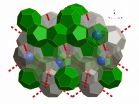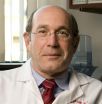Molecular tag team revealed to control cell division
2014-12-10
(Press-News.org) In a ground-breaking paper published in Nature, they show that the three protein complexes act in relay to regulate cell division: reactivation of one leads to the second becoming active.
Cells rely on control systems to make sure that each aspect of the cell division cycle occurs in the correct order. Following successful segregation of the genomes in mitosis, each must return to its pre-division state in a process called mitotic exit. Mitotic exit is irreversible for all multicellular organisms. Loss of cell cycle control during this process - leading to unregulated and abnormal growth - is a key characteristic of cancer cells.
Now researchers based within the Cancer Research UK Manchester Institute at The University of Manchester - part of the Manchester Cancer Research Centre - have investigated the regulation of mitotic exit in yeast cells.
Professor Iain Hagan, who leads the Cell Division group that carried out the research, said: "In particular, we wanted to find out the role played by three molecules, known as Protein Phosphatase 1, 2A-B55 and 2A-B56."
Phosphatases are enzymes that remove phosphate groups from molecules, leading to a change in the molecule's activation and its control of cellular activity. They act in opposition to kinases, which add phosphate groups and are known to be over-active in some cancers.
PP1 and PP2A account for 95% of all of the phosphatase activity of a human cell and had previously been assumed to be unlinked enzymes with a discrete set of functions.
The group looked at the activity of the three phosphatases and found that PP1 was the master regulator that controlled the timing of the successive activation of each PP2A. This molecular 'tag team' coordinated the yeast cell's progression through the different steps in mitosis.
"Much of this process is conserved throughout all mammalian cells, which means that our studies in yeast will give us greater insight into cell division, and indeed overall cellular communication, in humans," added Professor Hagan.
INFORMATION:
ELSE PRESS RELEASES FROM THIS DATE:
2014-12-10
Clathrates are now known to store enormous quantities of methane and other gases in the permafrost as well as in vast sediment layers hundreds of metres deep at the bottom of the ocean floor. Their potential decomposition could therefore have significant consequences for our planet, making an improved understanding of their properties a key priority.
In a paper published in Nature this week, scientists from the University of Göttingen and the Institut Laue Langevin (ILL) report on the first empty clathrate of this type, consisting of a framework of water molecules ...
2014-12-10
CAMBRIDGE, MA -- Using a gene-editing system originally developed to delete specific genes, MIT researchers have now shown that they can reliably turn on any gene of their choosing in living cells.
This new application for the CRISPR/Cas9 gene-editing system should allow scientists to more easily determine the function of individual genes, according to Feng Zhang, the W.M. Keck Career Development Professor in Biomedical Engineering in MIT's Departments of Brain and Cognitive Sciences and Biological Engineering, and a member of the Broad Institute and MIT's McGovern Institute ...
2014-12-10
Anticipated changes in climate will push West Coast marine species from sharks to salmon northward an average of 30 kilometers per decade, shaking up fish communities and shifting fishing grounds, according to a new study published in Progress in Oceanography.
The study suggests that shifting species will likely move into the habitats of other marine life to the north, especially in the Gulf of Alaska and Bering Sea. Some will simultaneously disappear from areas at the southern end of their ranges, especially off Oregon and California.
"As the climate warms, the species ...
2014-12-10
For the firefighters and rescue workers conducting the rescue and cleanup operations at Ground Zero from September 2001 to May 2002, exposure to hazardous airborne particles led to a disturbing "WTC cough" -- obstructed airways and inflammatory bronchial hyperactivity -- and acute inflammation of the lungs. At the time, bronchoscopy, the insertion of a fiber optic bronchoscope into the lung, was the only way to obtain lung samples. But this method is highly invasive and impractical for screening large populations.
That motivated Prof. Elizabeth Fireman of Tel Aviv University's ...
2014-12-10
There are pros and cons to the support that victimized teenagers get from their friends. Depending on the type of aggression they are exposed to, such support may reduce youth's risk for depressive symptoms. On the other hand, it may make some young people follow the delinquent example of their friends, says a team of researchers from the University of Kansas in the US, led by John Cooley. Their findings are published in Springer's Journal of Psychopathology and Behavioral Assessment.
Adolescence is an important time during which youth establish their social identity. ...
2014-12-10
Patients with heart disease who receive transfusions during surgeries do just as well with smaller amounts of blood and face no greater risk of dying from other diseases than patients who received more blood, according to a new Rutgers study.
The research, published in the journal Lancet, measures overall mortality and mortality from cardiovascular disease, cancer and severe infection, and offers new validation to a recent trend toward smaller transfusions.
For the study, led by Jeffrey Carson, chief of the Division of Internal Medicine at Rutgers Robert Wood Johnson ...
2014-12-10
A class of drug for treating arthritis - all but shelved over fears about side effects - may be given a new lease of life, following the discovery of a possible way to identify which patients should avoid using it.
The new study, led by Imperial College London and published in the journal Circulation, sheds new light on the 10-year-old question of how COX-2 inhibitors - a type of non-steroidal anti-inflammatory drug (NSAID) - can increase the risk of heart attack in some people.
NSAIDs - which include very familiar drugs such as ibuprofen, diclofenac and aspirin - are ...
2014-12-10
Typhoon Hagupit soaked the Philippines, and a NASA rainfall analysis indicated the storm dropped almost 19 inches in some areas. After Hagupit departed the Philippines as a tropical storm, NASA's Terra satellite passed over and captured a picture of the storm curled up like a cat waiting to pounce when it landfalls in Vietnam on Dec. 11.
The Tropical Rainfall Measuring Mission or TRMM satellite, managed by NASA and the Japan Aerospace Exploration Agency gathered over a week of rainfall data on Hagupit. That rainfall data along with data from other satellites was compiled ...
2014-12-10
COLUMBIA, Mo. - Previous cancer research has revealed that women are less likely than men to suffer from non-sex specific cancers such as cancer of the colon, pancreas and stomach. Scientists theorized that perhaps this trend was due to a protecting effect created by female hormones, such as estrogen, that help prevent tumors from forming. Now, researchers at the University of Missouri have found evidence suggesting that the male hormone testosterone may actually be a contributing factor in the formation of colon cancer tumors.
In his study, James Amos-Landgraf, an assistant ...
2014-12-10
Ants: Ever since agriculture evolved ca 10.000 years ago, plants have been artificially selected to become the fast growing and highly productive varieties we know today. However, humans were not the first to see merit in cultivating their own food, as ants have been doing this for 50 million years. A lineage of South-American ants collect leaves and recycle their own feces to manure a fungus garden for food. New research shows that these ants have an evolutionary history of improvement of their fungal crops.
A joint effort by researchers at the Universities of Copenhagen ...
LAST 30 PRESS RELEASES:
[Press-News.org] Molecular tag team revealed to control cell division



